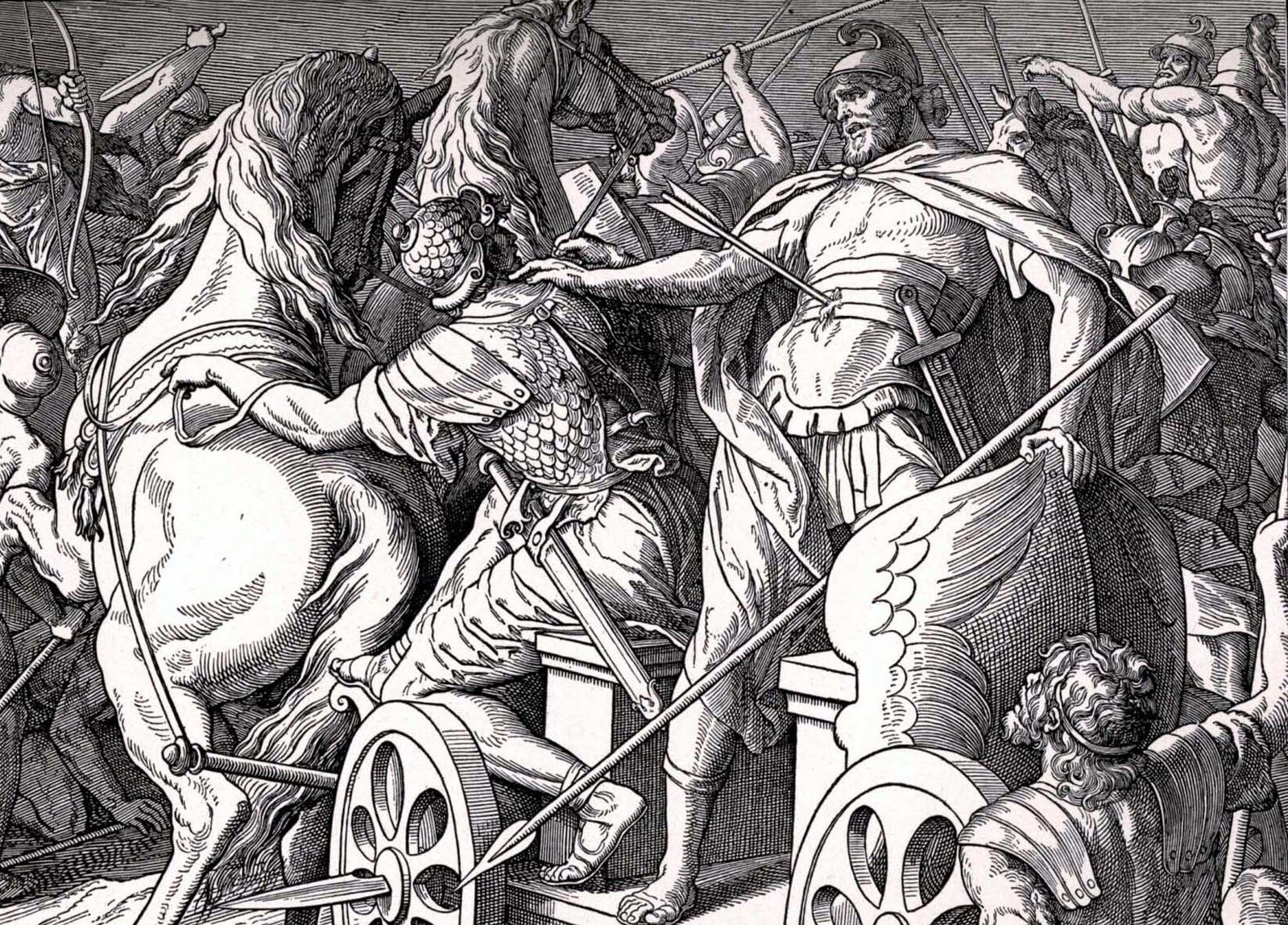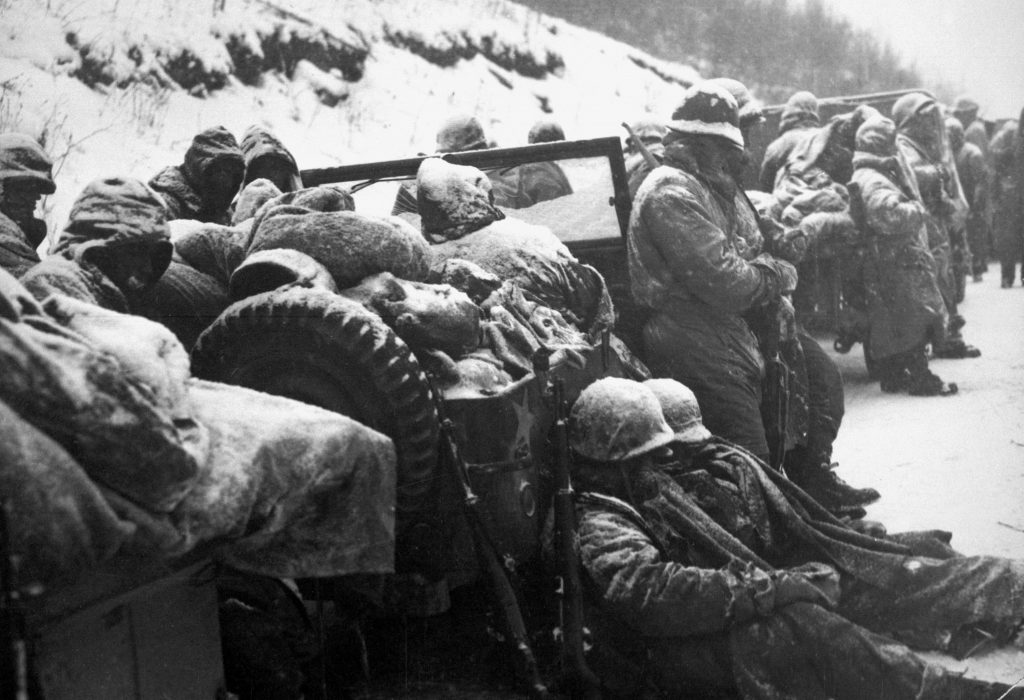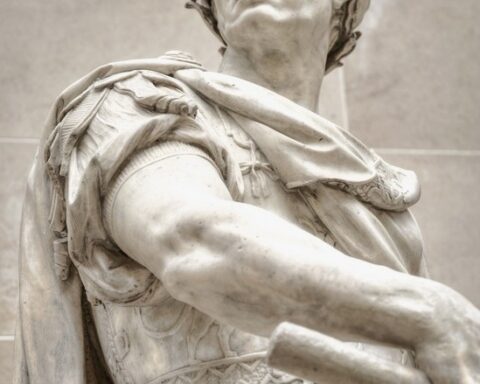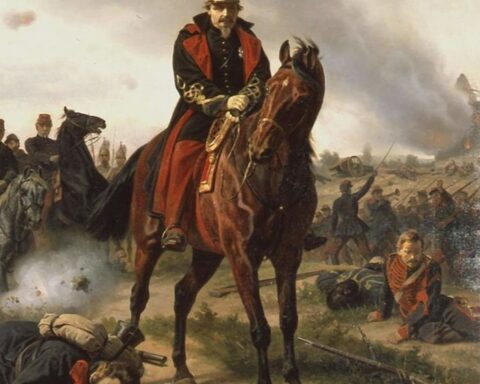Slate’s David Plotz blogs 1Kings 22:
[T]he last prophet, Micaiah, warns Ahab that the other prophetical advice is flawed and that he will die taking the town. Ahab ignores the caution, instead sending Micaiah to prison with orders that he not be released “until I come home safe.” To which Micaiah wittily and cruelly responds, “If you ever come home safe, the Lord has not spoken through me.”
Of course, Ahab dies in the battle. As the Lord predicted, “the dogs lapped up his blood.” Even worse, “the whores bathed [in it].” Though an extraordinarily gruesome image, this does not actually make sense. Why would a whore—or anyone—bathe in blood?
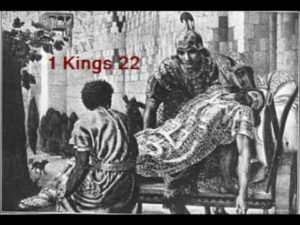
Readers of the KJV will search in vain for this confusing act on the part of Samaria’s whores as Plotz is blogging from the Jewish Publication Society (JPS) bible. The difference in the verses (in this case v38) is interesting:
And they washed the chariot by the pool of Samaria; and the dogs licked up his blood; the harlots also washed themselves there; according unto the word of the LORD which He spoke. – JPS
And one washed the chariot in the pool of Samaria; and the dogs licked up his blood; and they washed his armour; according unto the word of the LORD which he spake. – KJV
Why the difference? The short answer is one that most people probably don’t know: there is not “one bible” in the same manner that there is “one Beowulf,” to choose a famous example.
In the case of that Saxon epic, we have but a single manuscript copy and as a result there is no question of contradictions: a man with one watch always knows the time. But in the case of the Bible, we have tens of thousands of manuscript copies in dozens of languages from dozens of places and recorded over the course of 15 centuries. These copies all contain copyist errors, additions, and omissions*, and one of the jobs of a translator who assembles a bible using manuscripts is choosing which of the variant readings to include. The JPS chooses manuscripts which contain the gruesome image; the manuscripts used to assemble the KJV did not contain the phrase.
But even before we can answer Plotz’s question specifically, we have to resolve how the prostitutes bathed in the blood of King Ahab. Here are a couple variant readings (I’ll skip those that follow the KJV in excluding the particular passage as they are of no help to us) which might give us some data with which to answer the question:
And they washed the chariot by the pool of Samaria, and the dogs licked up his blood, and the harlots washed themselves in it, according to the word of the Lord which he had spoken” – RSV
When his chariot and armor were washed beside the pool of Samaria, where the prostitutes bathed, dogs came and licked up the King’s blood just as the Lord said would happen” – Living Bible
They washed the chariot at a pool in Samaria (where the prostitutes bathed) and the dogs licked up his blood, as the word of the Lord had declared. – NIV
And they washed the chariot at the fountain of Samaria; and the swine and the dogs licked up the blood, and the harlots washed themselves in the blood, according to the word of the Lord which he spoke. – Septuagint
So it seems we have a few possibilities:
- The prostitutes literally and purposely bathed in Ahab’s blood after he was slain.
- Ahab’s weapons were washed in a pool where the prostitutes commonly bathed.
- The phrase is a figure of speech or something, illustrating the depth to which Ahab had fallen (even those at the lowest end of society would be higher than him).
Now, to pick, we should refer back to the phrase that ends all of them, “according to the word the Lord spoke.” What did God say about dogs and prostitutes? Back in 21:19 the prophet Elijah delivered a message to Ahab: “Thus saith the LORD, In the place where dogs licked the blood of Naboth** shall dogs lick thy blood.” So while the dogs licking up Ahab’s blood is obviously included in that reference, the prostitutes bathing is not – which might lead us to suspect the reference is parenthetical rather than intrinsic to the passage.
The fact that prostitutes bathing in the blood of kings is not a common act or symbol (though it could be a very powerful one***) leads to the same idea.
The fact that the phrase is included in some documents and excluded in others leads to the idea that it was added as a reference point so those reading might know precisely which pool is being spoken of – at least I find that explanation less unlikely than that some scribe found the reference too icky and so deleted it or that such a powerful image was accidentally dropped****.
Taking all that, finally we reach the issue that Plotz specifically asks about: why would a whore bathe in blood? She probably had no choice. When Ahab’s army cleaned the blood from his chariot, they used the closest body of water they could find, a nearby pool well-known as a place where prostitutes gathered and bathed. Therefore if the prostitutes did truly bathe in the blood of Ahab – who led Israel into spiritual harlotry more than any king before him (1Ki 16:33) – it was not a purposeful act on their part, but simply an example of the ironies of history one discovers when seriously reading God’s word.
* There are no two copies that are precisely the same, though the vast majority of errors are minimal and easily explained and corrected. The rest are what blogs are for.
** Naboth the Jezreelite was judicially murdered so Ahab could take his land for a botanical garden. (1 Ki 21)
*** A symbolic approach might also explain the insertion of swine in the Septuagint version, which not coincidentally is the version with the most powerful ‘bathed in blood’ imagery.
****Does that make it “original” or not? I suspect the KJV may be correct in excluding it if originality is the goal. But that does not make it unhistoric – rather like the account of Moses’ death in a book he wrote it simply makes the phrase explanatory.

